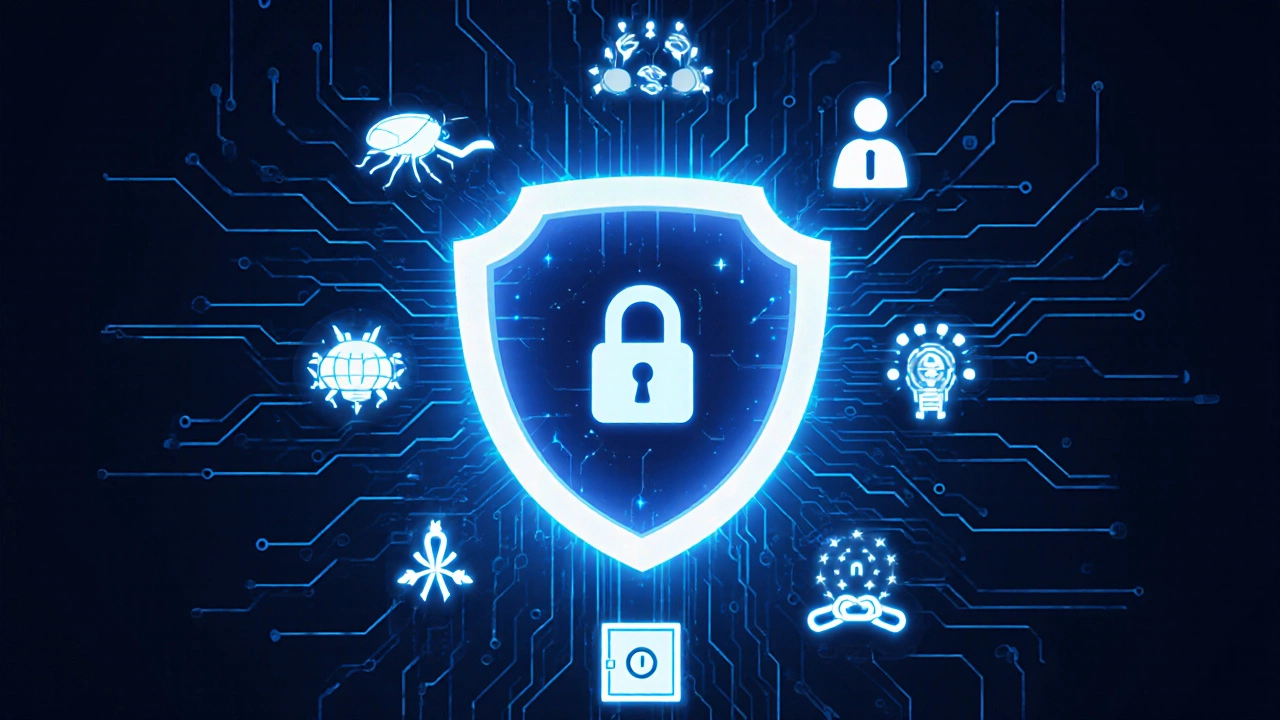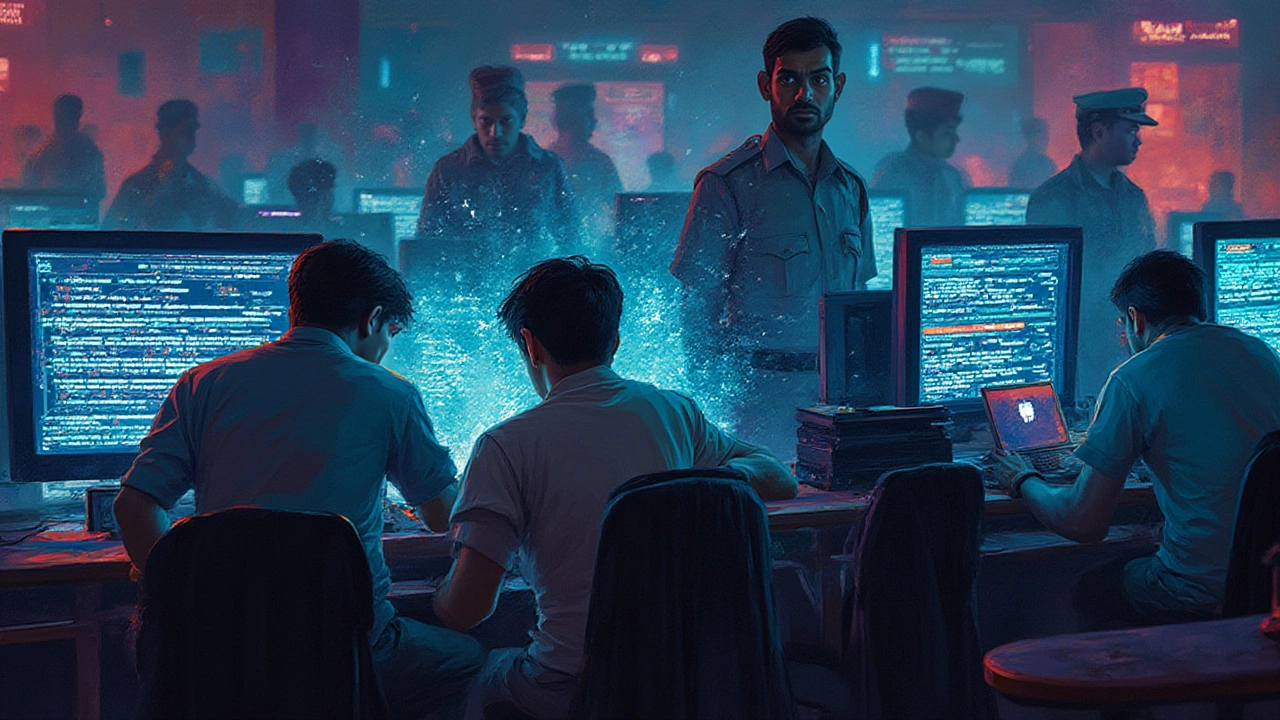Cyber Crime Law: What It Means for You
If you spend any time online, you’ve probably heard the term “cyber crime” tossed around. What many don’t realize is that there’s a whole legal framework behind those headlines. Cyber crime law covers everything from hacking and phishing to identity theft and ransomware. It tells you what’s illegal, how the authorities can act, and what punishments can look like.
In India, the Information Technology Act 2000 is the backbone of cyber crime law. It defines offenses, prescribes penalties, and gives power to agencies like the Cyber Crime Investigation Cell. Knowing the basics helps you recognize when a threat crosses the line from annoying to criminal.
Who Enforces Cyber Crime Law?
When a cyber attack happens, it’s not just a group of geeks in a dark room you’re up against. The police have a dedicated cyber unit, often called the cyber police, that can trace IP addresses, seize servers, and collect digital evidence. At the same time, cyber crime lawyers step in to protect victims’ rights, file complaints, and guide you through the legal maze.
Other bodies—like the Indian Computer Emergency Response Team (CERT‑In) and the Ministry of Electronics and Information Technology—monitor threats and issue alerts. They work together with the police to shut down scams, track down fraudsters, and even coordinate with other countries when a hacker operates across borders.
Maximum Penalties and Common Offenses
The law takes hacking seriously. Depending on the severity, penalties can range from a few months in jail to up to 10 years and hefty fines. For example, publishing personal data without consent can attract a fine of up to INR 5 crore, while ransomware attacks that cause large-scale disruption can lead to the maximum term.
Some of the most common cyber crimes you’ll hear about are phishing scams, ransomware, online fraud, and identity theft. Each has its own set of punishments, but the key takeaway is that the law is getting tougher. Courts are now more willing to impose heavy fines and long prison terms to deter would‑be hackers.
So, what can you do if you’re a victim? First, report the incident to your bank and the local cyber police. Keep screenshots, emails, and any other evidence. Then, reach out to a cyber crime lawyer—they’ll help you file a proper complaint and protect your interests while the investigation runs.
Even if you’re not a victim yet, staying safe is cheaper than dealing with legal battles. Use strong, unique passwords, enable two‑factor authentication, and keep your software updated. When you get an unexpected email asking for personal info, assume it’s a scam until proven otherwise.
Understanding cyber crime law doesn’t make you a legal expert, but it gives you the confidence to act fast and keep your digital life secure. Whether you’re a student, a small business owner, or just someone who checks social media daily, knowing the basics can save you time, money, and a lot of headaches.

What Is Considered a Cyber Crime? Common Types and Legal Consequences
Cyber crime includes hacking, identity theft, online fraud, and ransomware. Learn what's illegal, how it's prosecuted in New Zealand, and what to do if you're targeted. Know your rights and how a cyber crime lawyer can help.

Who Monitors Cyber Attacks? The Real Players Behind the Scenes
Who monitors cyber attacks? Government agencies, private security firms, international coalitions, and cyber crime lawyers all play critical roles in detecting, responding to, and prosecuting cyber threats. Learn how the system works-and why legal expertise matters.

Cybersecurity Threats Explained: What It Fights Against
Learn the main dangers cybersecurity battles-malware, phishing, ransomware, DDoS, insider threats, and more-and how a cyber crime lawyer fits in.

Top Country for Cyber Crime: Global Rankings, Trends, and Shocking Facts
Discover which country leads the world in cyber crime, learn about global cybercrime hotspots, and get helpful cyber security tips to stay safer online.

Why So Few Cyber Criminals End Up Behind Bars: Cyber Crime Law Explained
Ever wondered why most cyber criminals never see a jail cell? Get the inside scoop on cyber crime law, the real obstacles to digital justice, and eye-opening facts.

Are Cyber Attacks Really Bad? Unmasking the Truth About Online Threats
Explore why cyber attacks are considered bad, their surprising effects, and how you can protect yourself from online threats. Real facts, tips, and stories.

Top Examples of Cyber Crime: Real-World Cases and How to Steer Clear
Get the low-down on real cyber crime cases, how cybercriminals operate, and practical ways to protect yourself online. Loads of facts and simple tips.

What Can the Cyber Police Do? Exploring Their Real Powers
A lot of people think the cyber police are like tech wizards or movie hackers, but their job is a mix of problem-solving and digital footwork. This article explains exactly what cyber police can do when it comes to fighting cybercrime, from tracking online scams to collecting digital evidence. You'll learn what happens behind the scenes during a digital investigation and when to reach out for help. There are also some smart tips for keeping yourself safe before you ever need them. If you want to know what real power the cyber police have, you're in the right place.

Who Monitors Cyber Crime? Straight Talk for Worried Minds
Ever wondered who actually keeps an eye on cyber criminals? This article breaks down the real people and organizations keeping the digital world in check. You’ll find out about the right authorities, how cyber crime is tracked, and who really steps in when something goes wrong online. Plus, you’ll get a few smart tips in case you ever face a cyber attack yourself. Get ready to finally clear up the mystery about who’s actually protecting you from hackers.

Cyber Attack Defense: Who’s Really in Your Corner?
Ever wondered who actually stands between you and cyber attacks? This article breaks down the teams and experts defending against digital threats, from IT professionals to cyber crime lawyers. Get the facts on legal protections, practical tips to strengthen your own defenses, and what really happens when a cyber attack hits. Simple explanations with real-world examples you can relate to. Stay protected by understanding exactly who’s on your side in the battle against cyber crime.

Cyber Hackers: Who They Are and Why You Should Care
Ever wondered what cyber hackers really do? This article breaks down who these digital criminals are, how they operate, and why they pose a threat to everyone online. Find out the truth behind the hoodie stereotypes, the sneaky tactics, and how cyber crime lawyers fit into the fight. You'll pick up incident response tips along the way. Stay alert—just knowing the basics can save you a lot of trouble.

Cyber Law: What Law School Is Best for a Future in Digital Justice?
If you're serious about fighting cybercrime, the law school you choose matters. This article breaks down top law schools for cyber law, their standout programs, and what you actually get from each one. It dives into real career paths, the importance of hands-on tech experience, and sneaky tips for getting ahead in this evolving field. Find out which schools give you the edge and why just having 'tech' in the program name isn't enough. Get practical advice from a real-world perspective, not just a brochure.